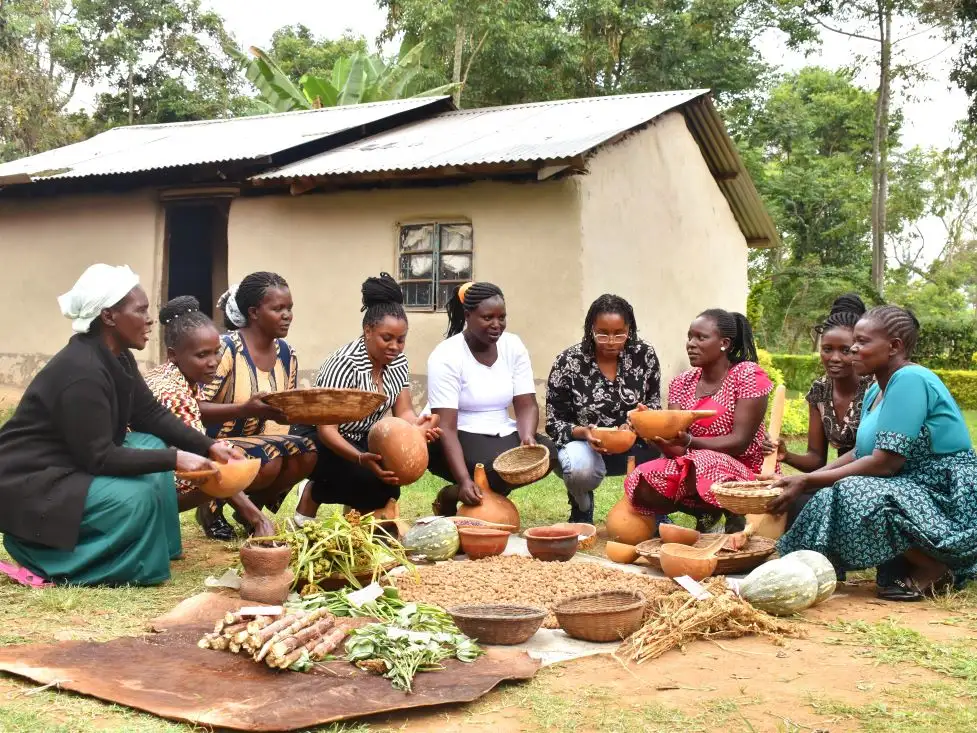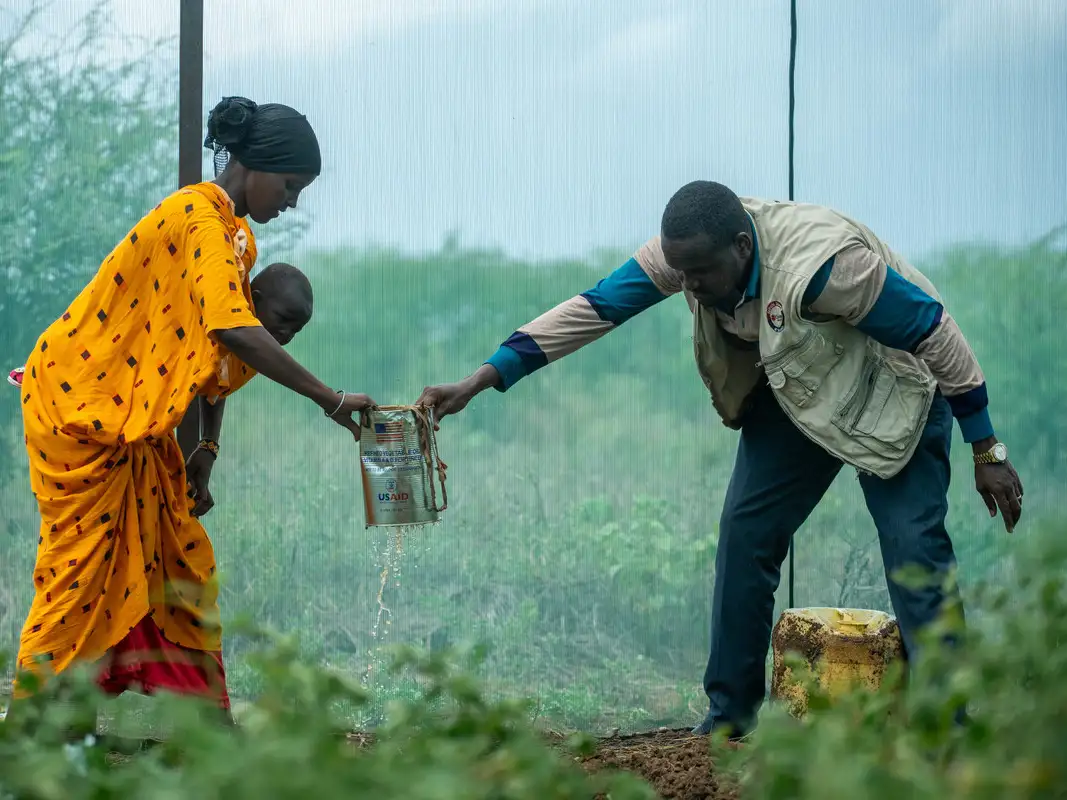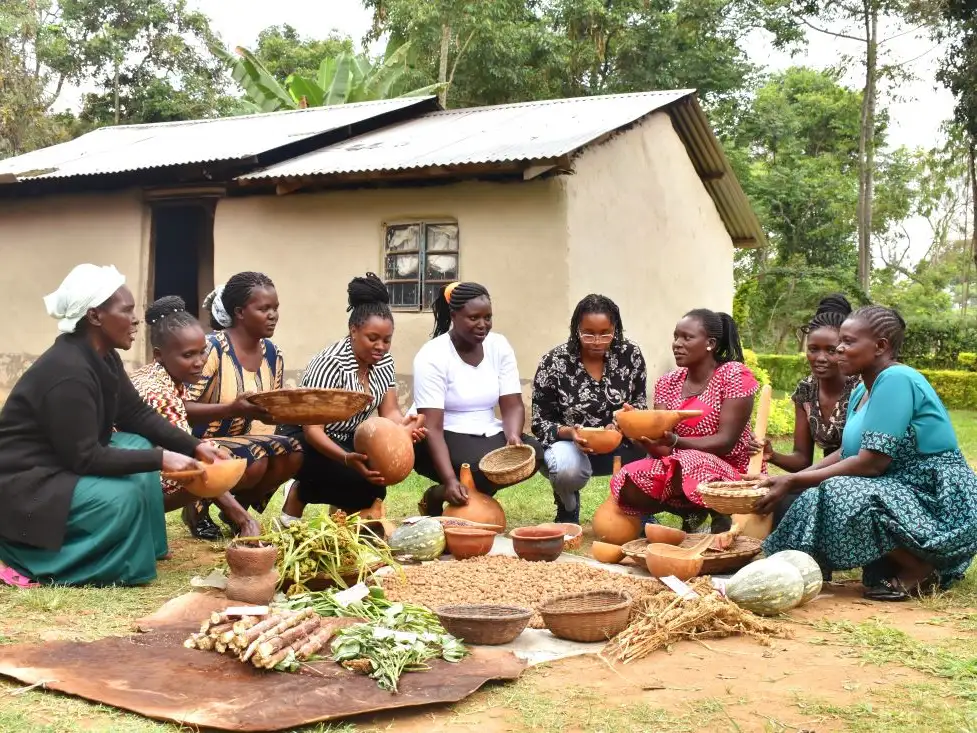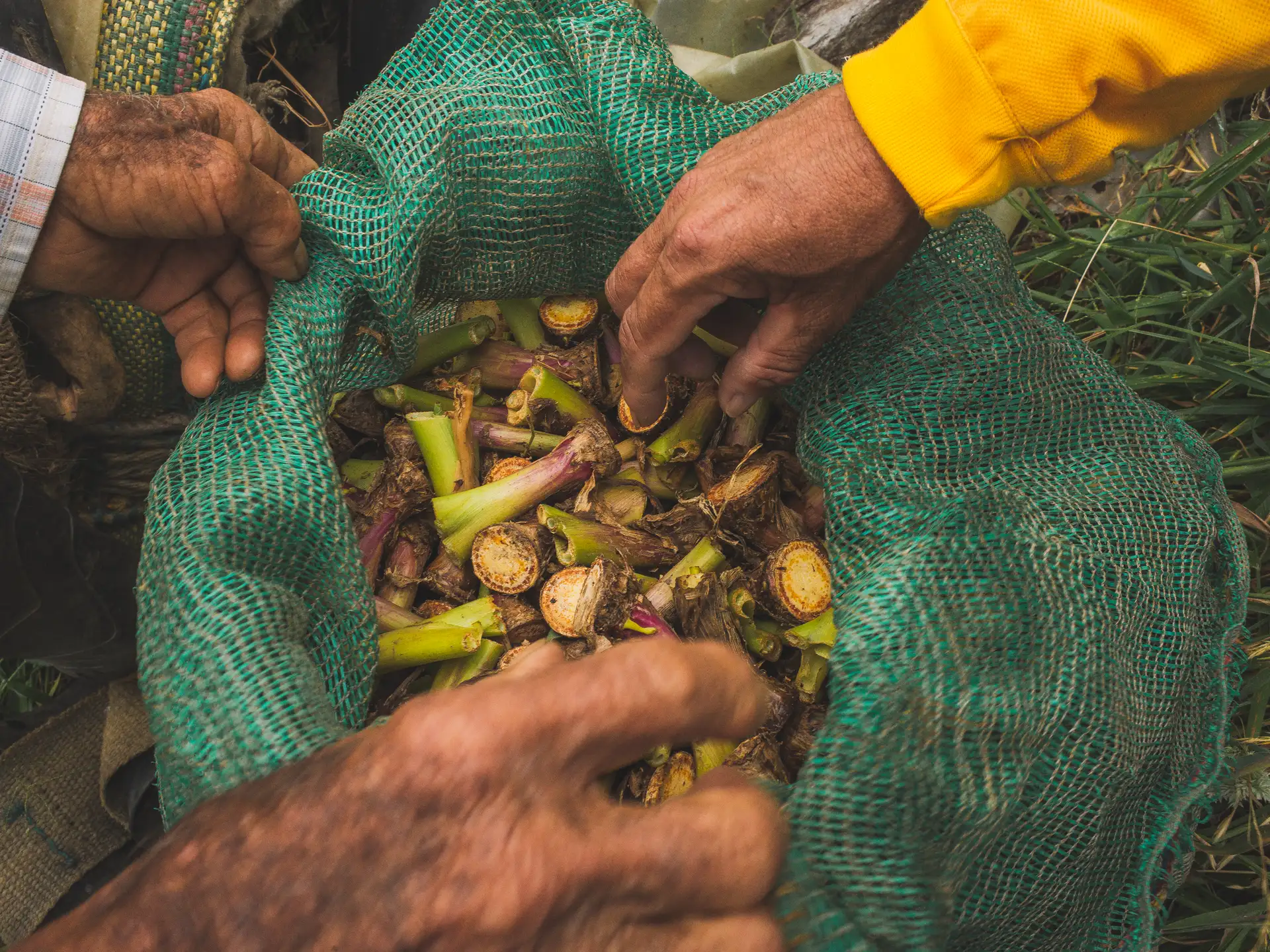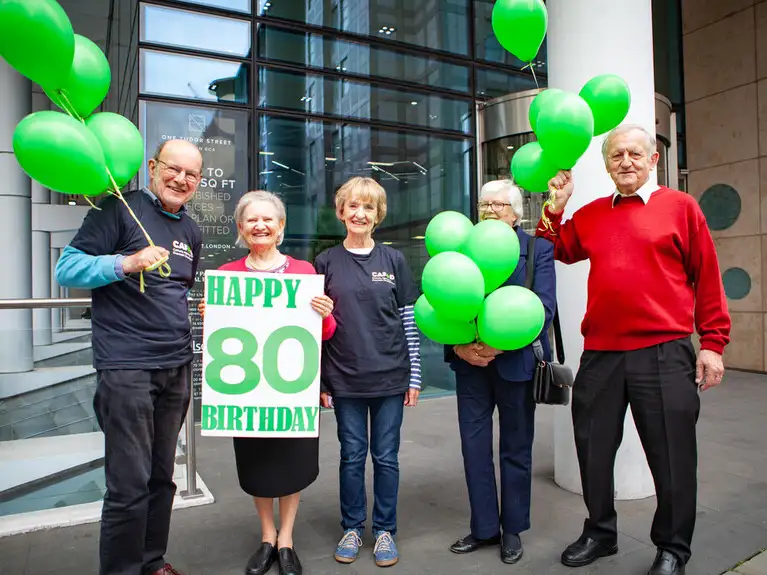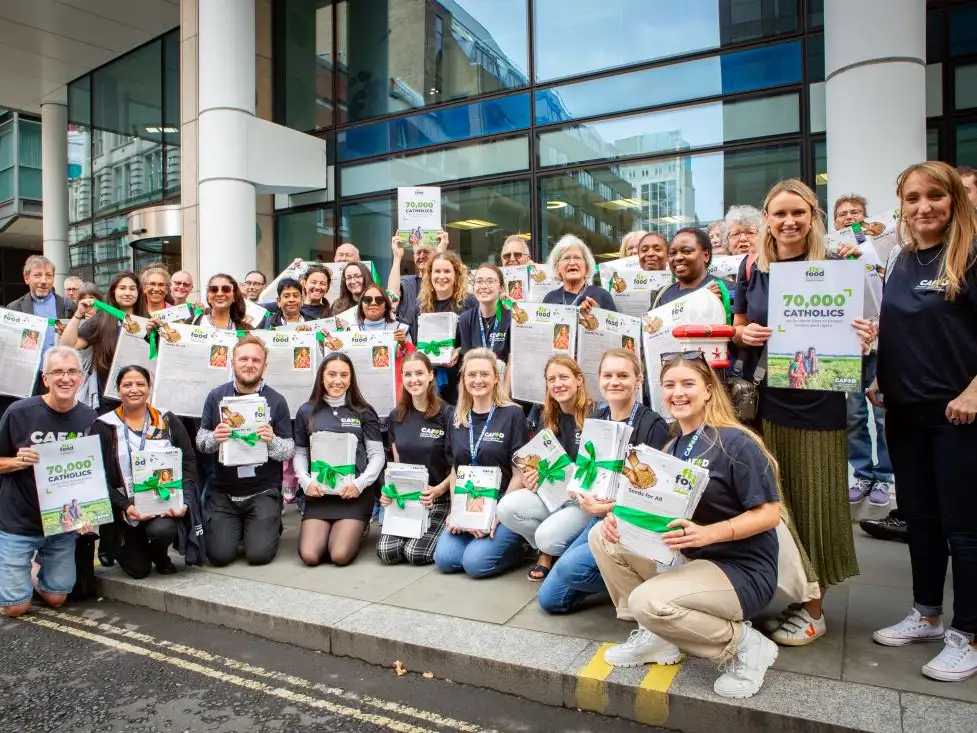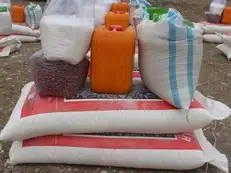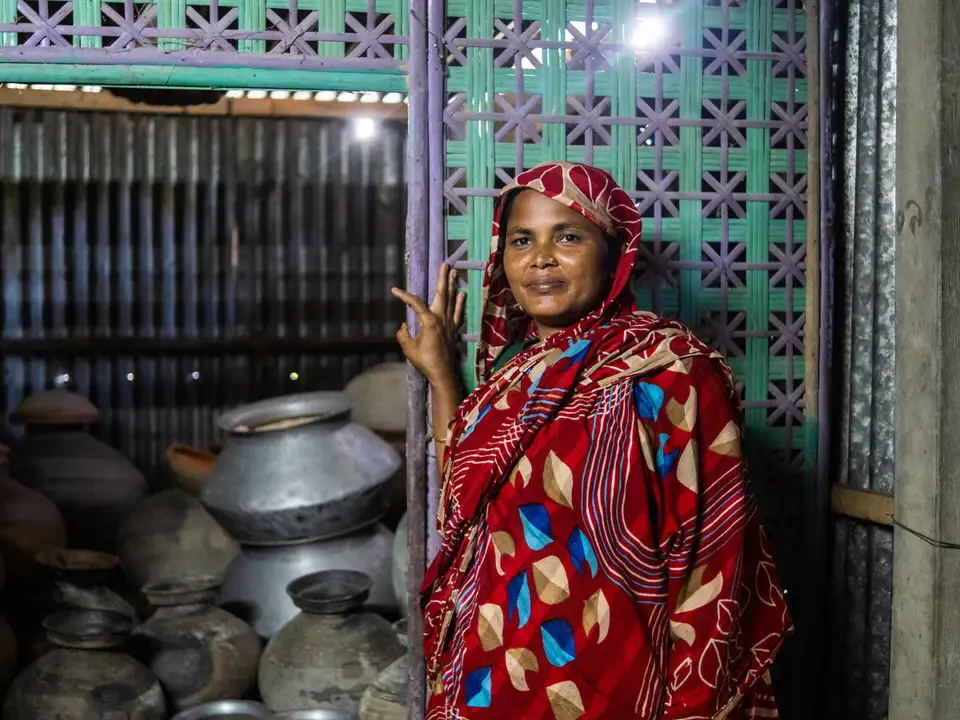

Victoria (right) on a visit to Guatemala to exchange cultural and agroecological experiences with a Mayan community.
For World Food Day and the International Day of Rural Women, we celebrate women like Victoria for their strength and achievements in sustaining their households and communities with nutritious food, despite the struggles and stereotypes they face.
Victoria is a single mum who lives in a rural village high in the Andes mountains in Bolivia with her three children and her nephew. Along with her mother, she takes care of the family, including her dad, who has diabetes and lost his sight recently. Although life is quite tough, Victoria is full of energy and hope, and recently graduated from high school through the adult education system in her community – the only person in her family to have done so.
Since 2018, Victoria has been participating in a project with CAFOD local partner CENDA. The aim has been for rural families to improve their food production and diversify their means of earning an income in the future, using eco-friendly and sustainable methods and revaluing their ancestral farming traditions. Women’s participation has been vital during the entire process.
Before the project, I didn’t know how to grow vegetables at all. Now I have my greenhouse where I have everything for the family.
Victoria has a small greenhouse and vegetable gardens on her homestead, growing potatoes and other vegetables, and raising alpacas, llamas and sheep. Victoria told us that participating in the project has been really good for her: “Before the project, I didn’t know how to grow vegetables at all. Now I have my greenhouse where I have everything for the family, that’s where we get what we need to eat.”
Victoria’s ability to grow her own food was crucial during the Covid-19 pandemic, when markets in Bolivia closed. This meant that it was harder for women to access food, dry goods and seeds, or indeed to sell what produce they had and earn much needed income to provide for their families.
Victoria told us: “When Covid-19 came, we couldn’t go to the city to buy anything, and at that time these vegetables helped me a lot.”
She also told us how she was able to share her produce with others in her community who were in difficulty. She told us that, initially, people weren’t interested in learning about these things, but when they saw how much food Victoria has been able to grow, they realised the benefits.
We don’t want to lose what we’ve inherited from our grandparents
Victoria also told us how important it has been to learn about climate prediction – something that her dad used to do – so that crops can be sowed that will survive the predicted weather conditions. These may be frosts occurring earlier than usual, or an extended rainy season.
“Now that my dad is ill, I have to learn, and I am teaching my children. That has been very important.”
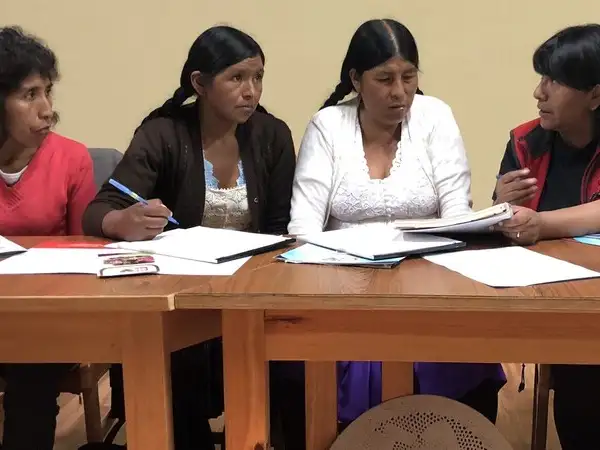

Victoria meeting with community members from Guatemala to share their experiences.
Last year, Victoria participated in an exchange with indigenous women from Guatemala, travelling to a small community there to see how they grow their crops and to understand their experiences of agroecological systems, but also to see how much the Mayan women there valued their ancestral farming traditions like planting natural seeds and using natural products to control crop diseases.
“Just like us they practise their traditions," Victoria said. "Just like we don’t want to lose what we’ve inherited from our grandparents.”
Revitalising and adopting cultural practices have been a critical achievement – many of these practices are key in combatting the effects of climate change, therefore making household crops and people’s income more resilient.
Victoria shared how important this visit and the training she has received have been for her self-confidence:
“Sometimes we were truly afraid to speak in meetings, to put forward new ideas. But now I’m not. I’ve been a community leader, helping out as the secretary.
"I was afraid, I really was, but now I’m not.”
World Food Day is on Sunday 16 October and the International Day of Rural Women is celebrated on Saturday 15 October.


